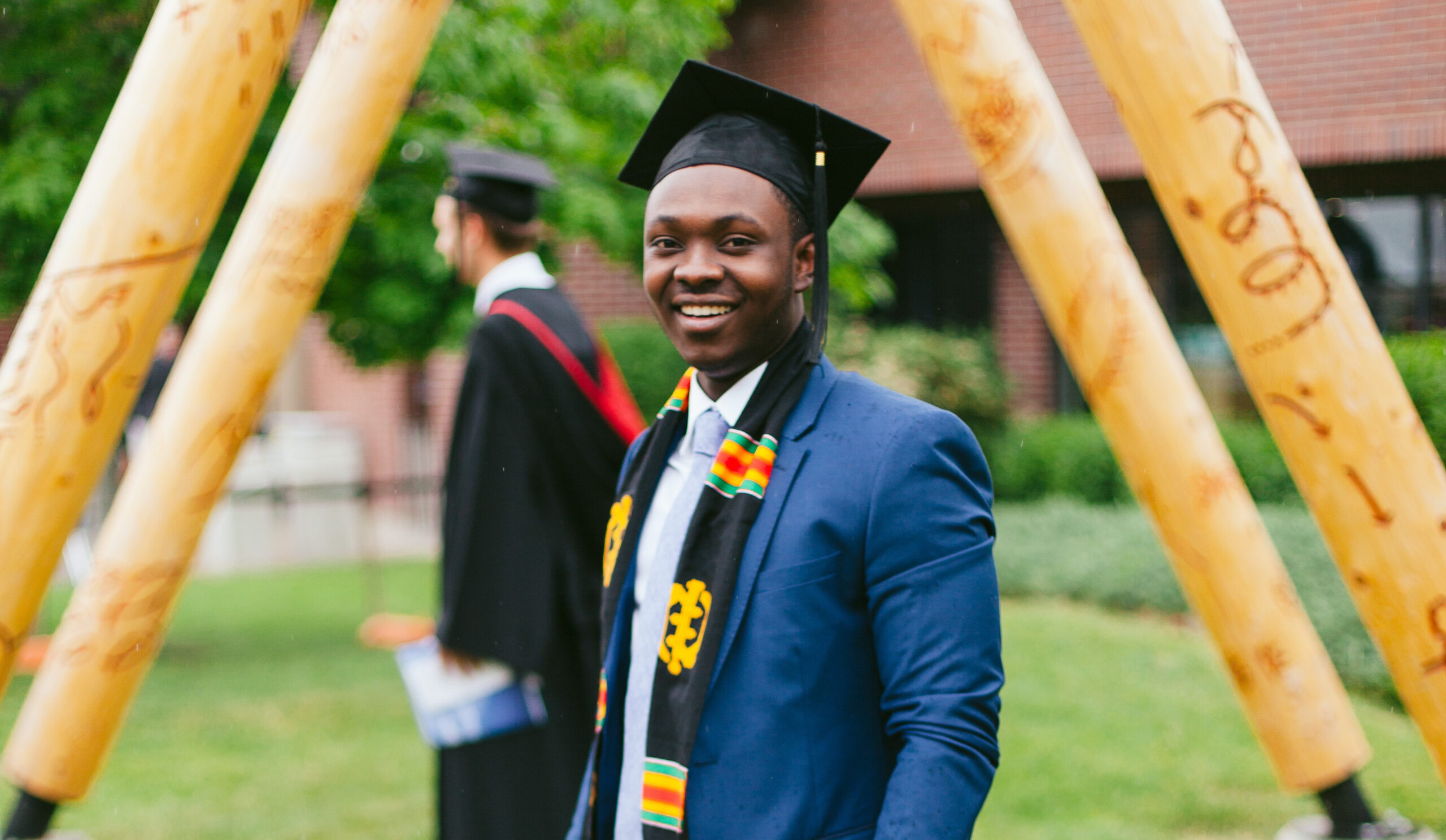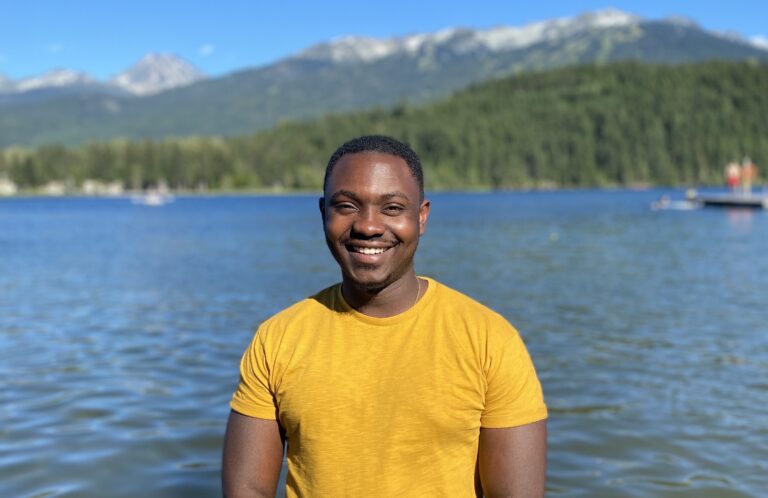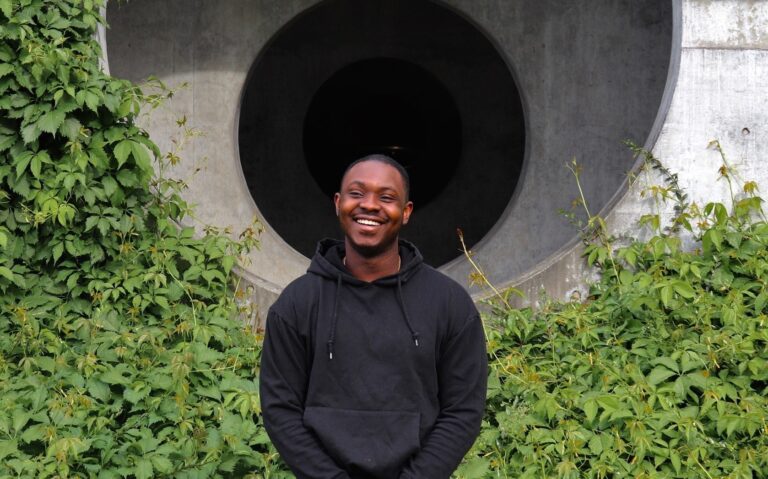From accepting his offer to UBC’s Okanagan campus to locking down a sought-after job at the Royal Bank of Canada’s artificial intelligence research institute, Nene credits his time at the university for helping him build the skills to succeed in his career.
A recipient of an International Scholars Award, Nene made the most of his time at UBC. As well as spending his spare time as the president of the African Caribbean Club and in student governance as a UBC Senator at Large, he excelled in his Economics degree. After gaining experience in the Canadian job market – a role he first secured through a tight-knit relationship with his professor – he now works at the cutting edge of banking, where he creates and implements artificial intelligence and machine learning models.
Could you tell us a bit about what you are up to now?
I work at Borealis AI, an artificial intelligence research institute for Canada’s biggest bank, RBC. I’m currently innovating and implementing applied artificial intelligence and machine learning research to finance. At the moment, I’m working with the global risk management team on a machine learning model to be used in lending.
What do you enjoy most about your job?
I really like the uncertainty of working in a cutting-edge field, which makes every day unique. Also, I enjoy getting to tackle significant problems with some of the leading researchers in the industry, leveraging big data and analytics.
In what ways did your UBC education and experience help prepare you for what you’re doing?
My degree in Economics helped me understand the Canadian and North American macro- and micro-economy, and when I’m developing models with my team, I factor in both these considerations. More specifically, the focus on math and statistics helped me grasp fundamental technical machine learning concepts. I also learned skills to help me effectively communicate with everyone from top-level executives to machine learning researchers, software engineers, and business stakeholders. These all came together to create a synergy of skill sets for my job.
Did you take part in any extra-curricular activities at UBC that helped prepare you for your current work?
During my time at UBC, I was the president of the African Caribbean Club, and a UBC Senator at Large. These roles helped me develop my leadership skills by representing huge, diverse groups and relaying their needs to the university leadership. This has helped me in my current job when putting together product specifications and requirements, as it has been very useful when looking at the bigger picture, expanding considerations, and factoring in risks.
How did you find your community at UBC?
Right off the hop, during the Jump Start orientation I made lifelong friends – many of whom I’m still close with today. I felt UBC’s support system across the board in all areas of my life, from the International Programs and Services team to my professors, who I regularly interact with still. The UBC community champions not only scholarship but is a testament to welcoming diversity of thought. These and many singular experiences at UBC made me feel very welcome.
How did you discover and apply for your first job after leaving UBC?
I noticed the need to gain Canadian experience, so I worked part time in retail banking to get my feet wet. How I got this role was actually thanks to a final year elective I took, Options and Futures trading, where I really connected with my professor. When I reached the end of the course, one of the major banks had reached out to her about potentially hiring from UBC as they had had a successful student quickly rise up the ranks a few years prior.
How did you find the job-hunting experience in Canada?
The Canadian job market is super competitive and, in my experience, prioritizes Canadian work experience. You can set yourself apart by taking on internships and working summer jobs in your desired field to understand the fundamentals of the roles and role evolution. Additionally, I would say finding a mentor early and building a network gives you an advantage, because being referred for a job holds weight when getting your foot in the door.
What do you miss most about UBC now you’ve graduated?
The sense of community. From the get go, attending Jump Start helped me make some of my closest friend to date, and allowed us new students to work together in finding ourselves and figuring out university life. Additionally, I miss the ability to connect with professors, an infinite number of co-curricular activities to join, and enjoying the beautiful and serene campus.
What advice would you give to students who are considering UBC?
UBC is a world-class institution where you can define not only your long-term career, but who you are and the impact you intend on having locally and globally. The resources and people are the perfect mix of empathy and excellence, and you will not regret your decision to come here.


